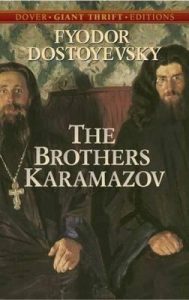 Title: Crime and Punishment (Goodreads)
Title: Crime and Punishment (Goodreads)
Author: Fyodor Dostoyevsky
Translator: Oliver Ready
Published: Penguin Classics, 1866
Pages: 702
Genres: Classic
My Copy: Paperback
Buy: Amazon, Book Depository, Kindle, Wordery (or visit your local Indie bookstore)
What I love about rereading a translated classic is that most of the time there are so many translations to try out. The translator makes a big difference and it is amazing how different it can make in interpreting the text. I love Russian literature and have openly discussed my issues with most of the commonly used translators, being their translation method, the anglicising of names or their censorship of the text. I will leave you to work out my meaning here, I just reread Crime and Punishment, but being an outsider to a BookTube readathon. My issue was the fact they picked a translation that I was not interested in reading, so I buddy-read the Oliver Ready translation with Derek from Read the World! I thought it was a way of being ‘sort of’ apart of the community reading event but still have a more one-on-one conversation with a better translation.
It has been eight years since I last read Crime and Punishment, and looking back at my previous review, it does not look like I said anything interesting about this great novel. I mention the class struggle and internal conflict of Raskolnikov, but I did not really go into any detail. The internal conflict is obvious, you can see a psychological break down of Raskolnikov after the murder, but I struggle to comprehend everything Dostoevsky is trying to say here. From the reread, it feels like there is a philosophical question being thrown at the reader, but Dostoevsky never seems to offer any insights. I wonder if Dostoevsky had any true answers here, because on this reread, I feel like the struggle with understanding the psychological and philosophical ramifications of the crime is the purpose of the novel and no true answers are given, or if they are I might find out on a later reread.
Class struggle was an interesting topic to explore with Crime and Punishment. Raskolnikov is struggling with the idea of class internally. He has it in his mind that he is a wealthy intellectual, but in reality, he is just a struggling young man living off the money his mother gives him. Upon rereading, I was fascinated to just how disillusioned he is about his own class status. He is just a young man, that really has no idea of his own value or how to budget his money. I found it interesting to look back at my reading of this novel, I was closer to the same age as Raskolnikov and probably had similar naivety. However, I will not go into great detail about this, as you will be able to find my discussion of the book with Derek here.
I was very impressed with Oliver Ready’s translation of Crime and Punishment; I think his translating method really appealed to me. There was some modernisation of the writing but done in a way that still felt dated. Like he used phrases that felt old but still more contemporary, and I think he managed to nail that balance of making the book accessible, while still feeling like an older piece of literature. I really hope Ready continues to translate some of the Russian classics, not just Dostoevsky.
I am probably going to regret not putting extra time into this review, I have a lot to say but I know that I want to save that for the podcast. This time reading it, I think I cared more about the secondary characters rather than Raskolnikov, particularly his sister Dunya, but I also liked Sofya. She was a fascination for me, and I wish Dostoevsky spent more time with her. I will have to read this novel again and again, not sure which translation I will go with next, possible the Michael R. Katz translation. This is the type of book that needs to be reread every few years, just to see what you get out of it later.

 Title: The Savage Detectives (
Title: The Savage Detectives ( Title: One Day in the Life of Ivan Denisovich (
Title: One Day in the Life of Ivan Denisovich ( Title: Dr Zhivago (
Title: Dr Zhivago ( Title: Pale Fire (
Title: Pale Fire ( Title: Don Quixote (
Title: Don Quixote ( Title: The Brothers Karamazov (
Title: The Brothers Karamazov ( Title: Candide: Or Optimism (
Title: Candide: Or Optimism ( Title: Choke (
Title: Choke ( Title: The Handmaid's Tale (
Title: The Handmaid's Tale (